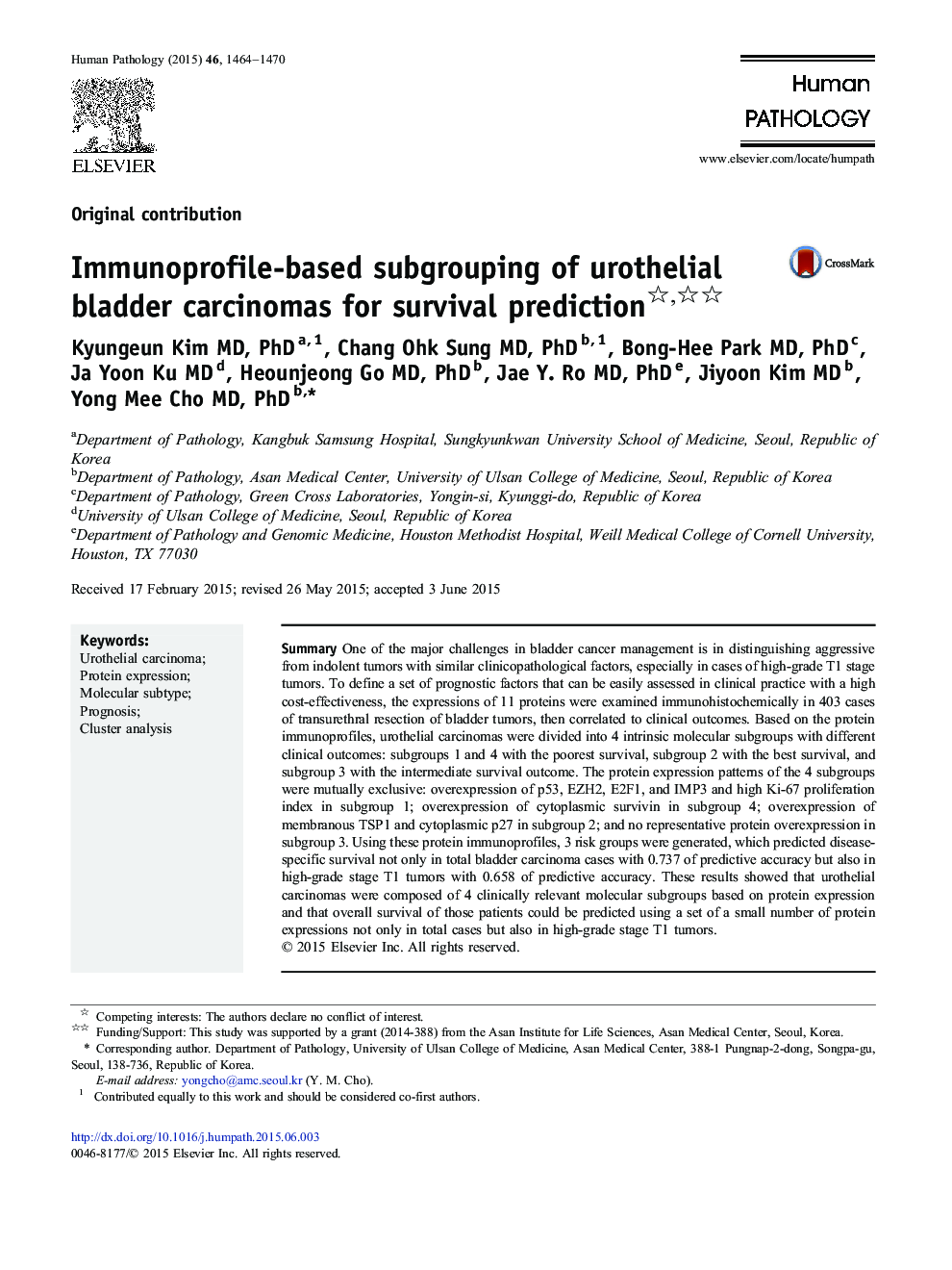| Article ID | Journal | Published Year | Pages | File Type |
|---|---|---|---|---|
| 4132612 | Human Pathology | 2015 | 7 Pages |
SummaryOne of the major challenges in bladder cancer management is in distinguishing aggressive from indolent tumors with similar clinicopathological factors, especially in cases of high-grade T1 stage tumors. To define a set of prognostic factors that can be easily assessed in clinical practice with a high cost-effectiveness, the expressions of 11 proteins were examined immunohistochemically in 403 cases of transurethral resection of bladder tumors, then correlated to clinical outcomes. Based on the protein immunoprofiles, urothelial carcinomas were divided into 4 intrinsic molecular subgroups with different clinical outcomes: subgroups 1 and 4 with the poorest survival, subgroup 2 with the best survival, and subgroup 3 with the intermediate survival outcome. The protein expression patterns of the 4 subgroups were mutually exclusive: overexpression of p53, EZH2, E2F1, and IMP3 and high Ki-67 proliferation index in subgroup 1; overexpression of cytoplasmic survivin in subgroup 4; overexpression of membranous TSP1 and cytoplasmic p27 in subgroup 2; and no representative protein overexpression in subgroup 3. Using these protein immunoprofiles, 3 risk groups were generated, which predicted disease-specific survival not only in total bladder carcinoma cases with 0.737 of predictive accuracy but also in high-grade stage T1 tumors with 0.658 of predictive accuracy. These results showed that urothelial carcinomas were composed of 4 clinically relevant molecular subgroups based on protein expression and that overall survival of those patients could be predicted using a set of a small number of protein expressions not only in total cases but also in high-grade stage T1 tumors.
